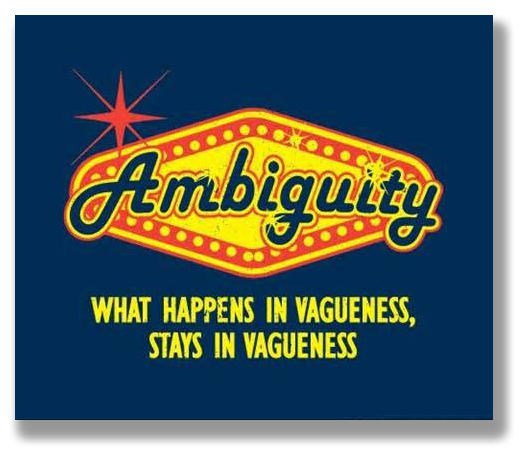We’re still doing a weekly newsletter… we’re just posting pieces of it every day. The news is fresher this way…

SUPREME COURT COOL TO ORAL ARGUMENT IN BECKLES
 A largely skeptical Supreme Court heard oral argument in Beckles v. United States on Monday. Beckles considers whether Johnson v. United States applies to the “career offender” sentencing guidelines in Chapter 4B, leaving observers with the impression that the Court might find a little vagueness in the United States Sentencing Guidelines to be expected, and not unconstitutionally bad.
A largely skeptical Supreme Court heard oral argument in Beckles v. United States on Monday. Beckles considers whether Johnson v. United States applies to the “career offender” sentencing guidelines in Chapter 4B, leaving observers with the impression that the Court might find a little vagueness in the United States Sentencing Guidelines to be expected, and not unconstitutionally bad.
Justice Kagan recused herself, so the case was heard by only seven judges, Justice Scalia’s seat still being vacant.
Johnson v. United States, decided in June 2015, held that the residual clause in the definition of “crime of violence” in the Armed Career Criminal Act, 18 U.S.C. 924(e), was unconstitutionally vague. Similar language is found a number of other places in the statutes and the Sentencing Guidelines. In one case, the question of whether Johnson applies to the definition of “crime of violence” in 18 U.S.C. 16(b), will be argued in the Supreme Court in Lynch v. Dimaya, which was accepted for Supreme Court review at the end of last September.
In Beckles, the Government changed its position after the 11th Circuit appeal that resulted in this case, leaving the Supreme Court to appoint a lawyer to defend the Circuit’s ruling. The Department of Justice’s position before the Supreme Court was a strange amalgam: while conceding that the career offender Guidelines are unconstitutionally vague under Johnson, the Government argued against making such a ruling retroactive. It said that if the court were to rule that Johnson applies retroactively to Guidelines career offender sentences, there would be “unwarranted costs on the public to the extent that it releases dangerous recidivists into communities.”

Part of the complexity of the argument resulted from the Government taking what Justice Kennedy criticized as an inconsistent position. The Government argued that the advisory Guidelines are subject to vagueness challenges because of the important role that they continue to play in the post-Booker world. But on the other hand, the Government’s contention that the advisory status of the Guidelines should prevent the Court from making any vagueness ruling retroactive. It unconvincingly relied on a distinction between “likelihood of a sentence” and “eligibility for a sentence” as the reason for the different positions on the vagueness question and the retroactivity question.
The court-appointed attorney defending the 11th Circuit decision argued that Travis Beckles’ position would call other Guidelines sentencing enhancements — such as the abuse of trust under U.S.S.G. Sec. 3B1.3 — into question. He suggested that the core principles of sentencing, such as adequate deterrence, are “even more vague” than the career offender residual clause.
Justice Alito picked up on that point, observing that the sentencing guidelines are replete with what could be called vague phrases. “I mean, I just opened them at random,” Justice Alito said. “I can see provisions that would generate a — you know, an arguable vagueness challenge if they were in a criminal statute.”

Beckles shows just how complicated the Court’s middle path on sentencing has become. The Court is struggling to regulate an advisory system in light of the fact that the purely discretionary system that came before the Guidelines was essentially unregulated. Travis Beckles’ attorney spent much of her argument fending off questions by four Justices – Alito, Breyer, Kennedy, and Chief Justice Roberts – about how a Guideline could be unconstitutionally vague when the purely discretionary system used by federal courts before the Guidelines were adopted was constitutionally permissible.
Later questions by Justice Breyer and the Chief Justice appeared to accept that a purely discretionary system might be subject to different rules than an advisory system. “It would seem to me that even the vaguest guideline would be an improvement and so difficult to argue that it’s too vague to be applied,” Roberts observed at one point.
Under sympathetic questioning from Justice Sotomayor, Beckles’ attorney rejected predictions that retroactivity would cause chaos in the courts. She noted that the 9th Circuit already allows defendants to challenge sentencing guidelines on vagueness, and that those challenges have not caused any land rush on the courts.
 Other unusual aspects of the Court’s post-Booker law were also on display. Chief Justice Roberts and Justice Alito both asked whether the Court’s recent decisions about the quasi-legal status of the advisory Guidelines in Peugh v. United States (2013) and Molina-Martinez v. United States (2016) should endure in the face of changing sentencing patterns in the district courts. Justice Breyer, who has a history with the Sentencing Commission, raised the possibility that the courts should be more indulgent of vague sentencing guidelines than vague statutes because the Commission is in a better position than Congress to refine the law.
Other unusual aspects of the Court’s post-Booker law were also on display. Chief Justice Roberts and Justice Alito both asked whether the Court’s recent decisions about the quasi-legal status of the advisory Guidelines in Peugh v. United States (2013) and Molina-Martinez v. United States (2016) should endure in the face of changing sentencing patterns in the district courts. Justice Breyer, who has a history with the Sentencing Commission, raised the possibility that the courts should be more indulgent of vague sentencing guidelines than vague statutes because the Commission is in a better position than Congress to refine the law.
Justice Ginsburg suggested that the case could be decided without reaching the questions vagueness or retroactivity, but the Government urged the Court not to do that, noting that many cases pending in the lower courts raise the vagueness and the retroactivity.
One law professor said “it is hard to read the transcript of the Beckles argument and think that the defendant is likely to prevail. Only Justice Sotomayor seemed to be asking friendly questions of petitioner’s counsel, and only she seemed to resist the Government’s likelihood/eligibility argument.”
If the Supreme Court acts as it has in the past, a decision will issue in Beckles anytime from February to April.
Beckles v. United States, Case No. 15-8544 (Supreme Court of the United States)
The Hill, Justices weigh scope of federal sentencing guidelines (Nov. 28, 2016)
SCOTUSBlog.com, Argument preview: Court to tackle constitutionality of residual clause in sentencing guidelines (Nov. 21, 2016)
Federal Sentencing Blog, Carissa Hessick, Beckles and the Continued Complexity of Post-Booker Federal Sentencing (Nov. 28, 2016)
Law360.com, Justices Loath To Call Guideline Doubling Sentences ‘Vague’ (Nov. 28, 2016)

